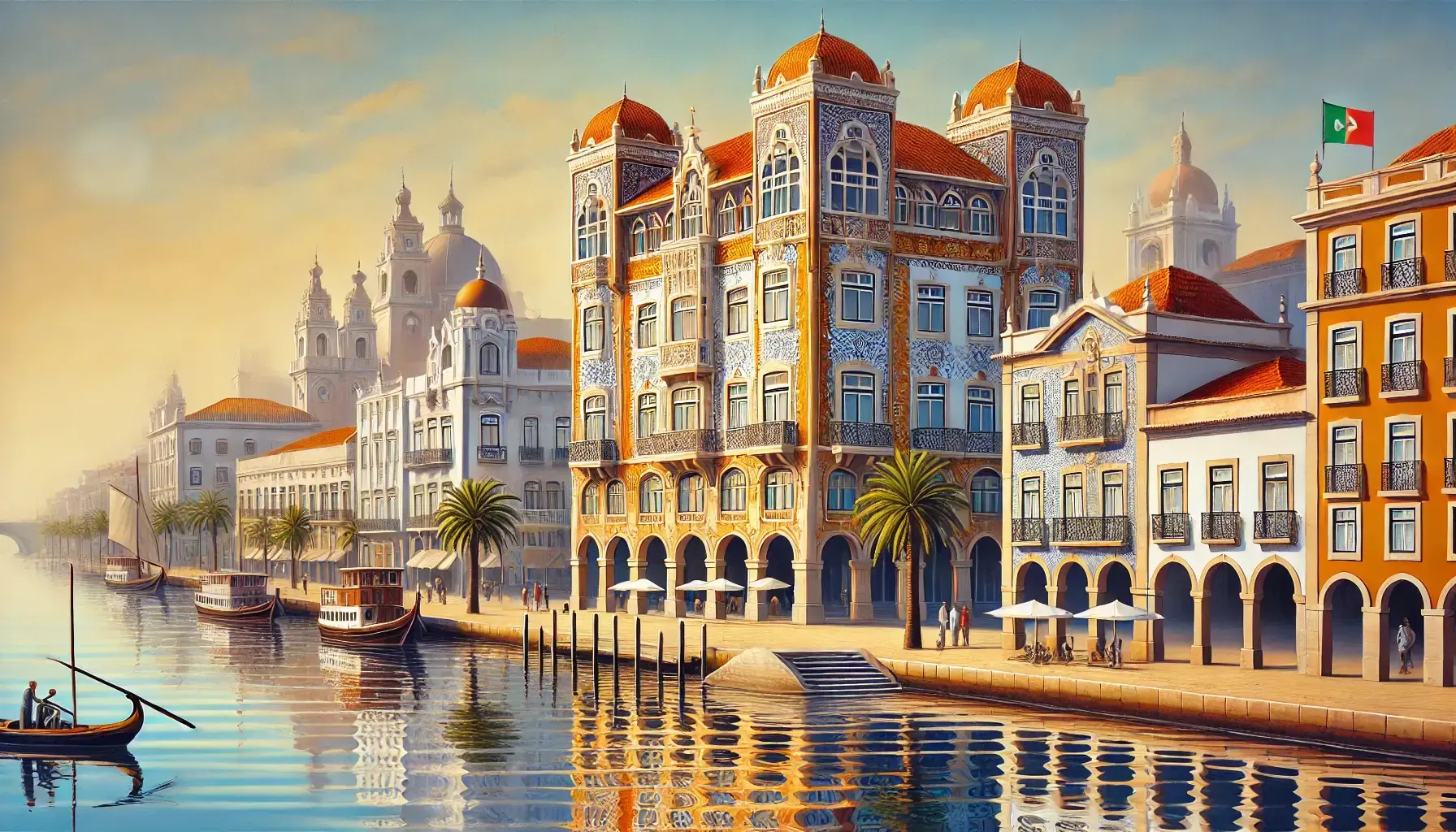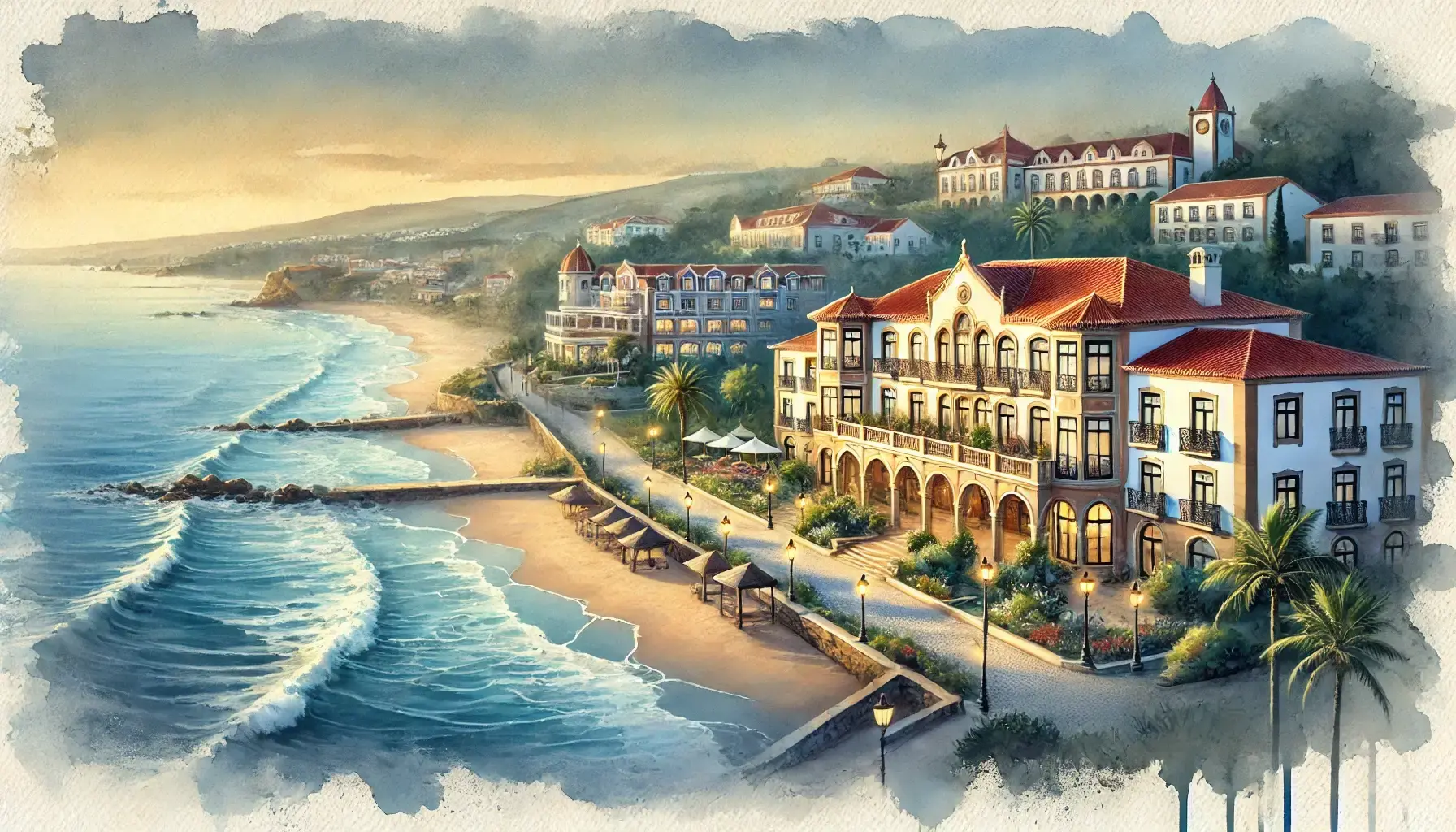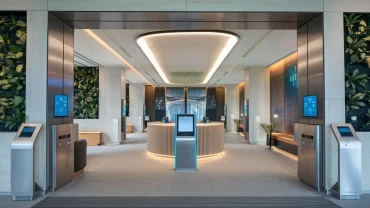Introduction
Portugal’s tourism industry has been booming in recent years, attracting visitors from all corners of the globe with its rich history, stunning coastlines, and vibrant culture. Central to this growth is the country’s thriving hospitality sector, which has evolved to cater to an ever-increasing demand. From luxury resorts in the Algarve to boutique hotels in Lisbon and Porto, Portugal offers a wide array of accommodations for travelers. Understanding just how many hotels there are in Portugal provides valuable insights into the scale and diversity of the country’s hospitality offerings. However, pinpointing an exact number is not straightforward due to the dynamic nature of the industry—hotels are constantly opening, closing, and undergoing reclassification.
1: Hotel Establishments in Portugal
In Portugal, hotels come in various forms, ranging from traditional hotels to more specialized establishments. These include apart-hotels, which offer apartment-style accommodations with hotel services; pousadas, which are historical buildings converted into luxury hotels; and hotel apartments, which combine elements of both hotel and apartment living.
According to recent data from the National Statistics Institute (INE), Portugal is home to approximately 1,800 hotel establishments. This figure includes only officially classified hotels and excludes other forms of accommodations, such as guesthouses, hostels, and vacation rentals, which are also popular among tourists. By focusing on classified hotels, the number provides a clear snapshot of the core hotel sector, though the broader accommodation landscape is far more extensive.
2: The Broader Accommodation Landscape
Portugal’s hospitality industry extends well beyond the realm of traditional hotels. The country boasts a diverse range of accommodations designed to meet the needs of every type of traveler. In addition to hotels, visitors can choose from resorts, guesthouses, vacation rentals, and even unique lodging experiences like rural retreats and eco-lodges.
When considering this broader spectrum of tourist accommodations, the number of establishments rises significantly. Portugal has over 4,000 registered tourist accommodation options, making it a highly versatile destination for both leisure and business travelers.
The Portuguese Hotels Association (AHP) plays a key role in this expansive industry. Representing about 700 members, AHP covers more than two-thirds of the national hotel industry. Their efforts help shape tourism policies and standards while promoting Portugal’s global reputation as a top-tier destination. By advocating for its members and ensuring the quality of services, AHP continues to be a driving force behind the country’s hospitality sector.
3: Regional Distribution of Hotels
The distribution of hotels across Portugal reflects the country’s geographical and cultural diversity.
- Algarve: Known for its stunning beaches and world-class golf resorts, the Algarve region has the highest concentration of hotels in the country. Its mild climate and scenic coastline make it a magnet for both international tourists and seasonal travelers, ensuring a strong demand for accommodations throughout the year.
- Lisbon and Porto: As the two largest urban centres in Portugal, Lisbon and Porto are major hubs for both tourism and business. Lisbon, with its historical landmarks, vibrant nightlife, and cultural events, attracts a constant flow of visitors. Porto, famous for its wine and picturesque riverside, also boasts a growing hotel scene. Both cities offer a mix of luxury hotels, boutique accommodations, and budget-friendly options, catering to a wide range of traveler preferences.
- Azores and Madeira: These Atlantic island regions have emerged as growing markets within Portugal’s hotel industry. The Azores, with its breathtaking landscapes and focus on eco-tourism, has seen an increase in boutique and nature-focused hotels. Madeira, known for its year-round mild climate and lush scenery, also continues to expand its hotel offerings, attracting both luxury travelers and adventure seekers.
By understanding the regional dynamics, it becomes clear that Portugal’s hotel industry is as varied as the country itself, offering something unique in every corner.
Section 4: Industry Growth and Trends
Portugal’s hotel industry has witnessed significant growth in recent years, driven primarily by a surge in tourism demand. The country’s rich cultural heritage, stunning landscapes, and favourable climate have made it an increasingly popular destination for travelers worldwide. This influx of tourists has spurred investment in the hospitality sector, leading to the development of new hotels and the expansion of existing ones.
A notable trend within the industry is the rise of boutique and eco-friendly hotels. Modern travelers are seeking unique and sustainable experiences, and Portuguese hoteliers are responding accordingly. Boutique hotels, often housed in historic buildings or designed with a distinct aesthetic, offer personalized services that set them apart from larger chain hotels. These establishments provide guests with an intimate atmosphere and a strong sense of place.
Eco-friendly accommodations are also gaining prominence. Hotels across Portugal are adopting sustainable practices to reduce their environmental footprint. This includes using renewable energy sources, implementing water conservation measures, sourcing local and organic food, and incorporating eco-conscious design elements.
Several initiatives highlight this shift towards sustainability:
- Small Portuguese Hotels: This collective emphasizes independent hotels that prioritize sustainability and authentic local experiences. They focus on environmental responsibility and support for the local community ([Small Portuguese Hotels](https://www.smallportuguesehotels.com/en/sustainability-at-sph)).
- NAU Hotels & Resorts: A leading hotel group that has integrated comprehensive sustainability practices across its properties, such as energy efficiency programs and waste reduction strategies ([NAU Hotels](https://www.nauhotels.com/en/sustainability)).
- JO&SO’s Eco-Friendly Picks: A curated selection of eco-friendly hotels that showcase Portugal’s commitment to sustainable tourism. These hotels are recognized for their environmental initiatives and eco-chic designs ([JO&SO Eco-Friendly Hotels](https://www.joandso.com/perks/best-hotels-portugal-eco-friendly)).
These trends not only cater to the evolving preferences of global travelers but also contribute to the preservation of Portugal’s natural beauty and cultural heritage.
Section 5: Challenges in Providing a Precise Count
Determining the exact number of hotels in Portugal is a complex task due to several factors that contribute to the industry’s fluid nature:
- Seasonal Hotel Operations: Many hotels, especially in tourist-centric regions like the Algarve, operate seasonally. They may close during off-peak months, which affects their inclusion in official counts at different times of the year.
- New Hotel Openings and Constructions: The hospitality sector is dynamic, with new hotels constantly being built or planned. These developments may not be immediately reflected in statistical data, leading to discrepancies.
- Reclassification of Buildings into Hotels: Properties are frequently repurposed to meet tourism demands. Historic buildings, former residences, and commercial spaces may be converted into hotels or boutique accommodations, altering the total count.
- Licensing and Operational Changes: Hotels may undergo changes in ownership, branding, or operational status. Some establishments might temporarily close for renovations or rebrand under new management, affecting their official classification.
Given these variables, the total number of hotels can fluctuate, and official records may lag behind real-time changes. To obtain the most accurate and up-to-date information, it is advisable to consult official sources:
National Statistics Institute (INE): Provides regularly updated statistical data on accommodation establishments across Portugal.
Portuguese Hotels Association (AHP): Represents a significant portion of the hotel industry and offers insights into industry trends and figures.
By referring to these organizations, stakeholders can access reliable data that accounts for the latest developments within Portugal’s hospitality sector.
Frequently Asked Questions
1. How many hotels are currently operating in Portugal?
As of 2024, Portugal boasts approximately 1,800 officially classified hotel establishments, including traditional hotels, apart-hotels, pousadas, and hotel apartments. This figure is part of a broader accommodation landscape that exceeds 4,000 total tourist establishments across the country.
2. What types of accommodations are included in the broader tourist landscape in Portugal?
Beyond traditional hotels, Portugal’s accommodation options include resorts, guesthouses, vacation rentals, and eco-friendly hotels. This diverse range caters to various traveler preferences, ensuring visitors have ample choices for their stays.
3. Which regions in Portugal have the highest concentration of hotels?
The Algarve region has the highest concentration of hotels, thanks to its popular beach resorts and golf tourism. Major urban centers like Lisbon and Porto also host a significant number of hotels, while the Azores and Madeira are emerging with growing hotel markets due to increased tourism.
4. What trends are shaping the hotel industry in Portugal?
Portugal’s hotel industry is experiencing growth fueled by tourism demand, with a notable rise in boutique and eco-friendly hotels. Sustainable practices are increasingly being adopted, showcasing the industry’s commitment to environmental responsibility.
5. Why is it difficult to provide an exact count of hotels in Portugal?
Counting hotels in Portugal is challenging due to seasonal fluctuations in operations, ongoing new constructions, reclassifications of properties into hotels, and frequent licensing changes. For the most accurate data, consulting official sources like the National Statistics Institute (INE) or the Portuguese Hotels Association (AHP) is recommended.









Comment (0)